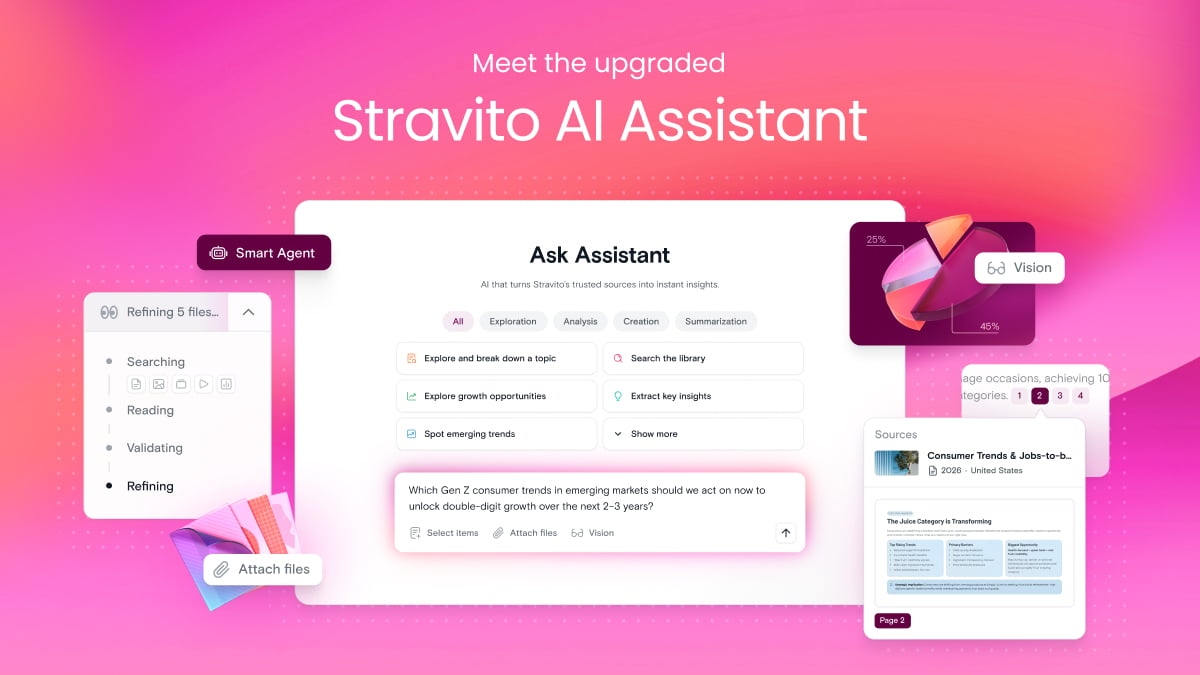Over the years, things had been changing at Company X. An increasing amount of market research commissioned, more new markets opened, and more employees hired. The competition had changed too; long time competitors were now accompanied by new, agile startups that seemed to be popping up everywhere. The sheer variety of choice on the market had made it more challenging than ever to stay on top and win over the hearts of consumers.
Yet the Consumer Market Insights team at Company X was still less than 10 people and their budget largely unchanged, despite the increased demand for research and insights across the company.
The team was exhausted. Everyday, they received dozens of emails requesting information, leaving them working primarily as librarians for the company, instead of doing the analytical work they were trained to, and that could really help drive the company forward. One Consumer Insights manager finally had enough – she knew that there had to be a better way.
Company X is fictional, but their problems are not. We’ve heard tales of similar struggles from countless organizations, and even previously experienced them ourselves. In fact, companies who were looking for a better way to manage their market knowledge and insights were instrumental in inspiring our search for something better.
When talking about the solution to the problems experienced by Company X (and many others), we often talk about “knowledge management”. While knowledge management is a useful term, its direct interpretation lends itself to a couple misconceptions. First, that the desired end result is to simply manage your knowledge. The goal of knowledge management should not be simply to organize your information. Instead the focus should be on using it, setting it free within your company.
"The goal of knowledge management should not be simply to organize your information. Instead, the focus should be on using it, setting it free within your company."
One of the best definitions of knowledge management was formulated by the world-renowned IT expert Tom Davenport. He defined knowledge management as “the process of capturing, distributing, and effectively using knowledge”. The elements of distributing and effectively using are key here–it’s important to emphasize that knowledge management is much more than simply organizing and storing.
A second misconception is that managing knowledge is something you should be doing yourself. While digital solutions for knowledge management have become accepted as the standard, many of them are not that far off from the analogue solutions that inspired them.
Consider the way that many of us still store and organize files on our computers; they are still illustrated and described as “folders”. And while most of the standard tools have basic search functions, the files themselves are still limited to one “folder” at a time, instead of being able to exist in several relevant places at once.
"Simply put, our filing cabinets of the past haven't gone away; we've just succeeded in making them digital."
Simply put, our filing cabinets of the past haven’t gone away; we’ve just succeeded in making them digital. Most knowledge management methods still require too much manual work. And that you memorize your file names.
That’s why just taking your knowledge management digital is not enough. With today’s innovation and technology, you can and should demand more from the solutions that manage your data and insights.






